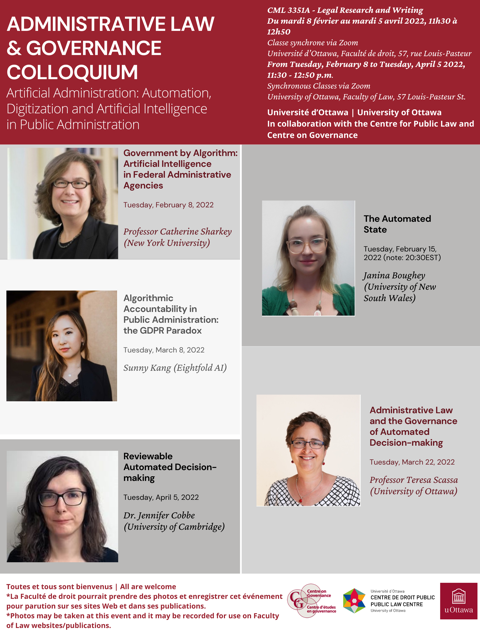Administrative Law & Governance Colloquium 2022: Janina Boughey (The Automated State), Tuesday February 15 8.30pm

The next speaker in this year’s Administrative Law & Governance Colloquium on automation, digitization and artificial intelligence in public administration will be Janina Boughey from the University of New South Wales, discussing her edited collection, The Automated State, at the unusual time of 8.30pm eastern (morning the following day Down Under).
You can register here for this talk and for the others in the series.
Here is the book abstract:
Australian governments are using technology to assist in the administration of the law and delivery of services to the community in a range of contexts, including tax, social security, immigration, health and national security. Use of automation by Australian governments has a mixed record of success. It allows governments to administer complex laws and deliver services more efficiently and accurately than humans could. However, recent experiences such as ‘Robodebt’ have highlighted that automation carries risks – for governments and citizens.
This book explores the implications, challenges and opportunities that automating government functions presents for our system of public law. It asks whether the laws and institutions we have in place to ensure accountability and transparency in government are fit for purpose in an age of automation. The book brings together judges, senior public servants, practitioners, and law and technology academics to interrogate these issues and find solutions that are workable from legal, technology and policy perspectives.
For readers new to the field, the book provides an entry point, including explainers on technology concepts commonly found in government automation. For readers familiar with developments in government automation, the book provides an opportunity to move beyond asking questions to exploring how elements of the public law system – both those that are familiar, as well as those less studied – can be adapted to preserve accountability and transparency in the digital age.
This content has been updated on February 11, 2022 at 13:29.